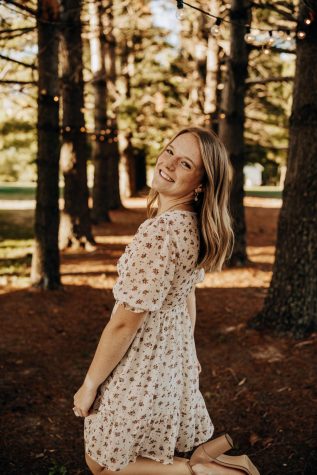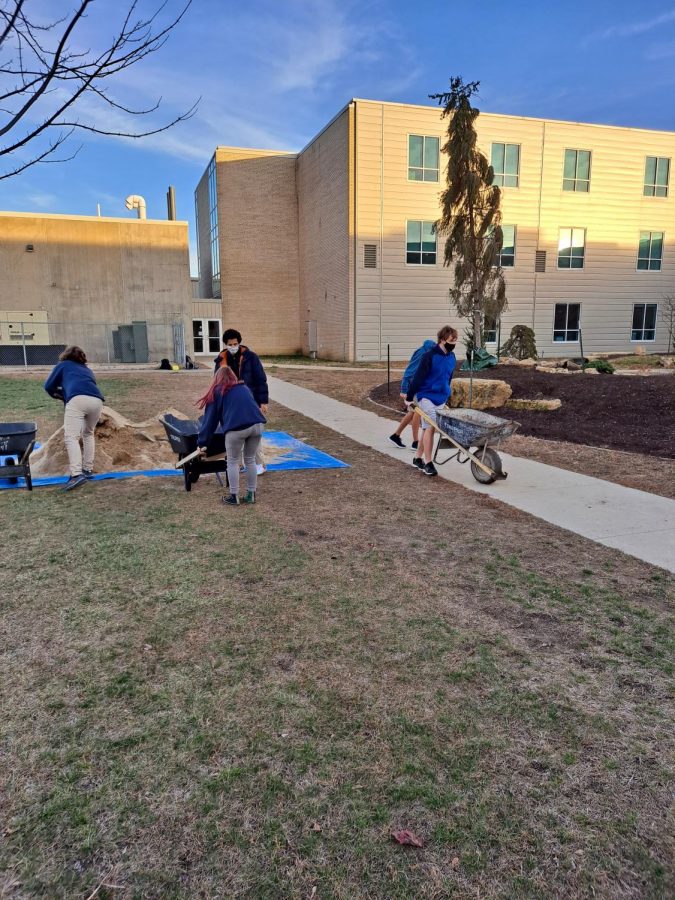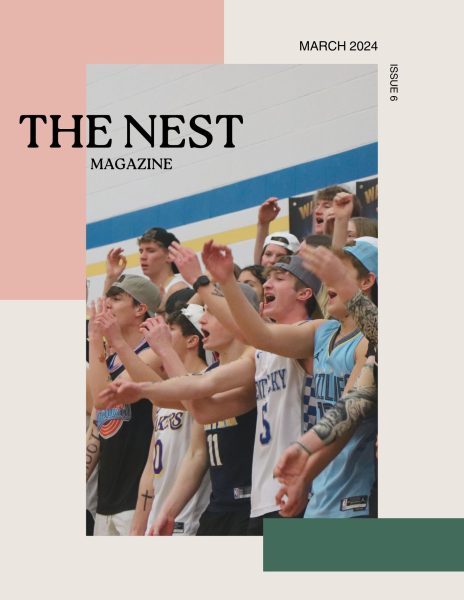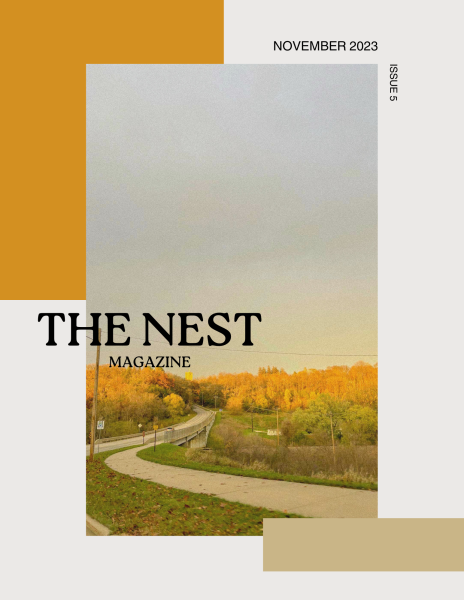Setting the standard for sustainability
Sustainability is an idea that comes naturally to some, but takes much more effort for others. One of the ways students try to make a difference environmentally is to join LEAP (Leaders of Environmental Action and Protection) Club where students encourage each other to practice sustainability.
How about gardening?
“Sustainability” means meeting the needs of the current environment while protecting it for future generations. Gardening can be a simple, environmentally friendly way for students to contribute to the cause of sustainability and maybe even grow their own food!
Ellie Kirby, ‘22, said, “I started a garden in my house over spring break, but since it’s too cold right now, it’s in my basement under a grow light. It is a salsa garden that includes two kinds of tomatoes, two kinds of onions, basil, cilantro, and about six different kinds of peppers.”
Testing the water
Similarly, LEAP Club practices environmental protection by doing nature walks, cleaning up trash, and water testing in Dubuque, according to Kenna Wolbers, ‘23.
Wolbers said, “This past Earth Day, we went on a field trip to Resurrection to teach kids how they could be environmental advocates. My favorite activity was going with Mrs. Schriver’s Environmental Science class to test water and clean up polluted areas for the day.”
Wolbers joined LEAP Club as a freshman and developed an appreciation for the environment. By learning about environmental concerns, she was driven to practice sustainability in her own life and encourages others to do the same.
Planting seeds
An exciting addition was made to Wahlert’s environmental repertoire this year: raised garden beds. Some LEAP Club members hope that the beds will encourage students to get involved in maintaining plant life and possibly inspire them to incorporate sustainability into their daily lives.
Mrs. Korrin Schriver said, “The responsibility for the raised beds will probably be a combination of Environmental Science and LEAP Club. We will also be working with Culinary Arts, which will do some of the seed planting.”
Science class during the summer?
After years of seeing environmental passion ignited in students like Kirby and Wolbers, Schriver was inspired to organize a program where students could gain hands-on experience within the agricultural field. So, the Agriculture Research and Career Exploratory was born.
This program will take place over the summer for students looking to explore the agricultural field. Through agricultural work such as planting, harvesting, and seeding, students will conduct a project in which they gather data, make evaluations, and determine what’s successful and what’s not.
Schriver said, “Students will also get to do some career exploration. They will be meeting up with people in different agriculture-related fields anywhere from farmers to chefs that rely on that food.”
The program will be worth science credit, which will allow students to free up their school schedules while still receiving agricultural education. It will be a combination of working with the greenhouse and raised beds at Wahlert and working at “The Farm.” “The Farm,” as referred to by Schriver, is the old ball field behind Holy Ghost where the research will take place.
Through the summer agricultural program and LEAP Club, students will continue to discover the footprint they leave on the environment.
Wolbers said, “I’ve learned from LEAP Club that it doesn’t matter how small of an impact you think something will make; if you work hard and spread the message, the world will be a much greener place than you found it.”

Jamie Vondra is a senior at Wahlert and an editor on The Gleaner. Vondra is involved in volleyball, bowling, and golf at Wahlert. Jamie enjoys creating...




